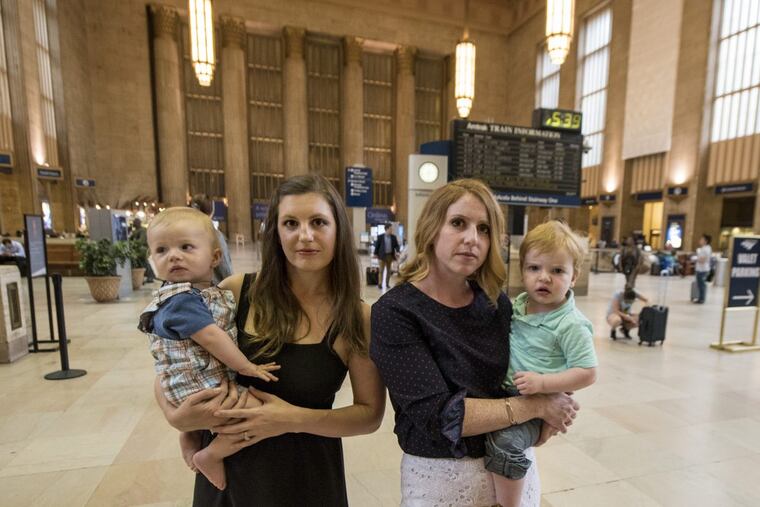Lactation suites sought by Philly moms' petition drive coming to Amtrak stations
Amtrak announces it will install lactation suites in five of its train station, including Philly's 30th Street Station.

Two Philadelphia nursing mothers and the approximately 64,000 people who joined the petition campaign they launched several months ago have something to celebrate: Amtrak announced Wednesday that it is installing lactation suites in five of its major train stations, including Philadelphia's 30th Street Station.
The first suite — actually a self-contained, mobile pod — premiered in Washington's Union Station on Wednesday. Other pods will be coming to 30th Street, as well as stations in Baltimore and Chicago in the next week or so, said an Amtrak spokeswoman. A fifth area will be installed at New York City's Penn Station in early fall.
"These new lactation suites demonstrate Amtrak's ongoing commitment to better accommodate the needs of our customers and their families while traveling with us," said David Handera, an Amtrak vice president. "It is important for Amtrak to provide mothers with a secure, clean, dignified, and private space."
That's a whole lot better than a toilet seat in a public restroom, which is what Philadelphia residents Samantha Matlin and Lacey Kohlmoos were protesting when they started an online petition last August, seeking sanitary, private places for women like themselves to breast-feed their babies or pump breast milk while commuting.
Kohlmoos said Amtrak's action "demonstrates how powerful women can be when we join together to create change for ourselves and our community. … My hope is that eventually we'll see lactation pods in every Amtrak station across the country."
The women's petition got signatures from as far away as Europe and South America.
Both women, who use Amtrak to commute for their jobs, were inspired to start their petition by their own experiences. Kohlmoos, who works for Care2.com, the activist networking site where they posted the petition, recalled a time she was told at Union Station that there was nowhere for her to pump breast milk other than in a public restroom. The restroom was unclean and didn't have an electric outlet for her breast pump. She ended up in a restroom at a nearby Starbucks, holding up other patrons who also needed it.
Breast-feeding is widely urged by experts in maternal and child health. But beyond the usual several weeks of maternity leave, nursing requires working mothers to pump their milk at least every few hours to keep up their supply and avoid painfully swollen, leaky breasts. Federal labor law says employers with more than 50 employees should allow women to take work breaks to express their milk and provide a private place to do so.
The Amtrak station lactation pods are from the company Mamava, which also has a computer and phone application that help women locate Mamava facilities in their area. The pods have benches, a fold-down table, and an electrical outlet, as well as a locking door.
Kimberly D. Woods, an Amtrak spokeswoman, didn't say the pods are being installed in response to the local petition, but she said the company does listen to customer feedback on its efforts to improve its stations and service.
Mothers are still allowed to nurse their babies on the trains and in other parts of the station, according to a company statement.